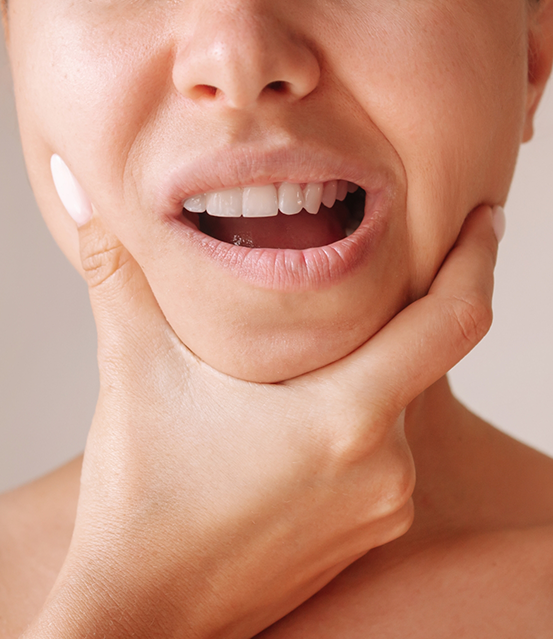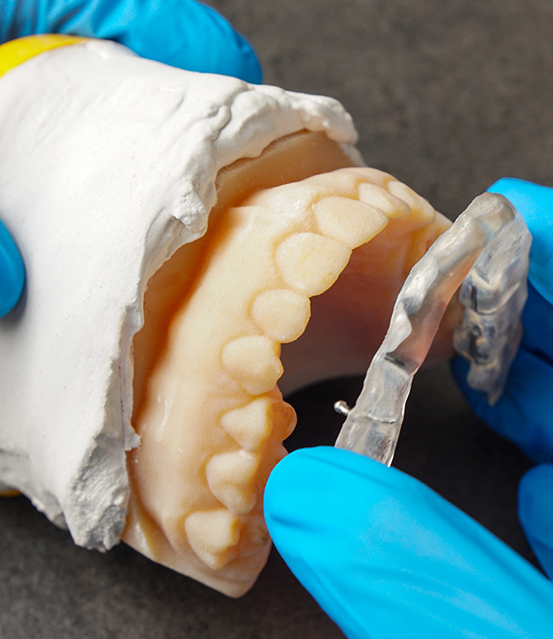TMJ Treatment Fort Worth
Targeted Solutions for Jaw & Head Pain
The temporomandibular joints connect the lower jaw to the temporal bone and play a crucial role in oral functions like chewing, speaking, and yawning. These joints, called the TMJ, along with their supporting muscles, ligaments, and tendons, work together to facilitate smooth movements. These joints also contain a soft disc that acts as a shock absorber, allowing for flexibility in all directions. Due to their complexity, the joints are considered one of the most difficult joints to treat when problems occur.
Why Choose Titanium Dental of Fort Worth for TMJ Treatment?
- Compassionate Dental Team That Puts Patients First
- Numerous Personalized Treatment Options Available
- Dental Insurance Accepted & Flexible Financing
Various Kinds and Signs of TMJ Disorders

TMJ disorders can fall into one of the three categories listed below:
- Myofascial pain, which is discomfort in the jaw joint area caused by muscle tension and spasms.
- Internal derangement, which includes disc displacement, jaw dislocation, or trauma to the jaw condyles.
- Arthritis, a degenerative joint disease.
The risk of developing a TMJ problem is higher if you grind your teeth or have bruxism for a long time, have had a jaw injury, or have certain types of arthritis, like rheumatoid arthritis or osteoarthritis. Symptoms of a TMJ disorder can vary greatly from person to person and may include earaches, ringing in the ears (tinnitus), headaches, back and neck pain, dizziness, muscle spasms, joint tenderness, jaw pain, popping or grating sounds when moving the jaw, jaw locking, and limited jaw movement. While some people may find relief from a TMJ disorder quickly, others may continue to experience symptoms despite extensive therapy.
Diagnosis and Treatment of TMJ Disorder

When evaluating for a TMJ disorder, Dr. Patel will thoroughly assess joint symptoms and function. Additional diagnostic tests, including special radiographic imaging, will be ordered if needed. Treatment options may include oral appliances like nightguards or stabilization splints to reduce strain on the joints. Other therapies such as steroid injections, occlusal adjustments, and orthodontic or prosthodontic treatment may be recommended to improve teeth alignment. In severe cases, surgery may be necessary.
Self-care methods can help alleviate TMJ disorder symptoms. Patients are advised to eat soft foods, avoid excessive jaw movements, practice stress reduction techniques, and apply ice packs or moist heat as directed. Gentle stretching exercises should be followed if recommended. Over-the-counter pain medications may provide temporary relief, but stronger medications may be prescribed if needed.

